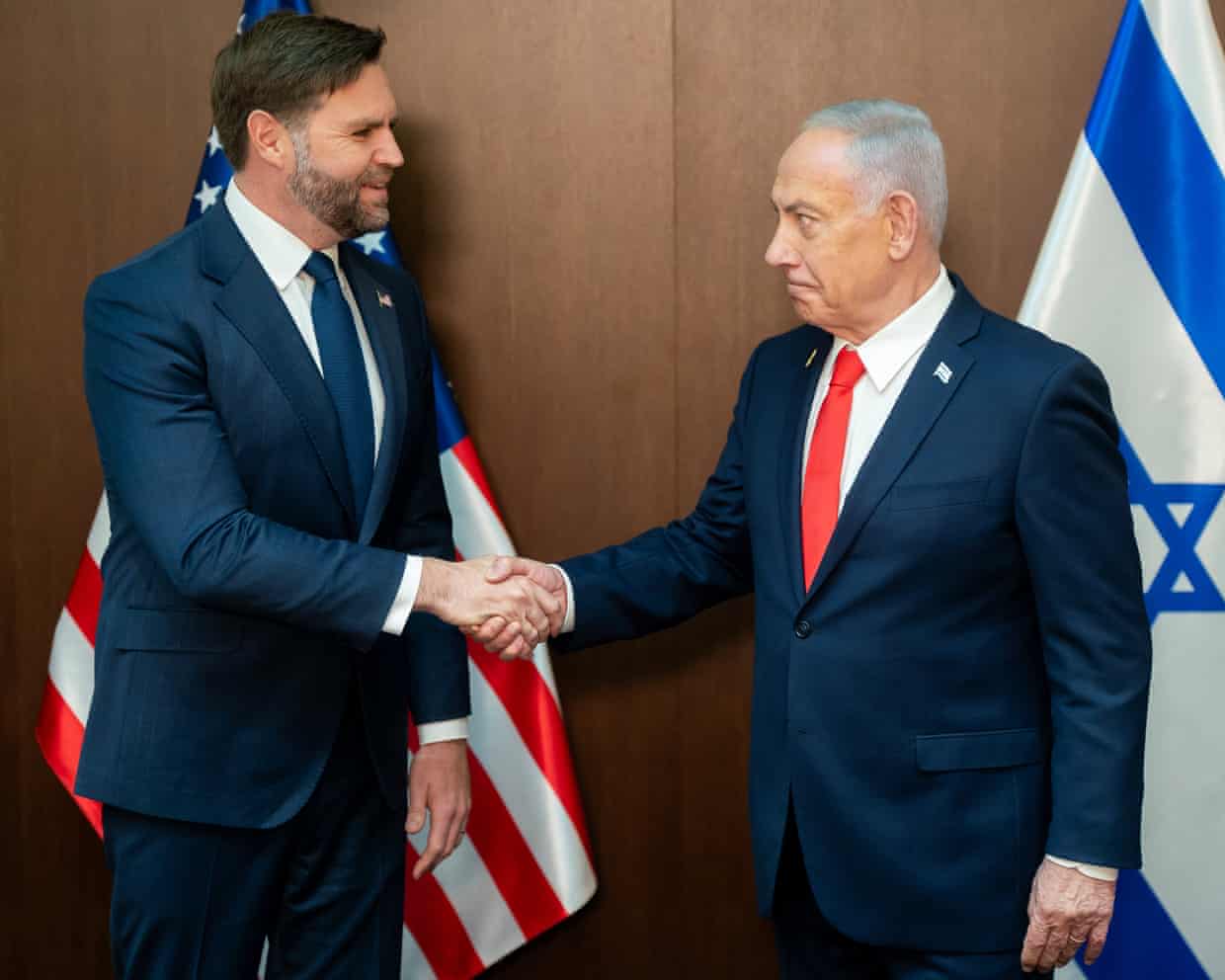Jerusalem, Oct. 22, 2025 – Israel’s Prime Minister Benjamin Netanyahu on Wednesday firmly rejected suggestions that his country is a client state of the United States, calling such claims “hogwash,” even as Washington continues a high-profile diplomatic effort to shore up a fragile ceasefire in Gaza.
Despite the U.S. supplying an estimated 68% of Israel’s foreign-sourced weapons, Netanyahu insisted that Israel maintains an independent partnership with Washington. “One week they say that Israel controls the United States. A week later they say the United States controls Israel. This is hogwash,” he said following a meeting with U.S. Vice President JD Vance in Jerusalem.
Netanyahu stressed that the two nations share common values and goals. “We can have discussions, we can have disagreements here and there, but on the whole, I have to say that in the past year we’ve had agreement – agreement not only on goals but how to reach them,” he said.
Vice President Vance echoed the sentiment, emphasizing a relationship based on mutual partnership rather than dependency. “We don’t want a vassal state, and that’s not what Israel is. We don’t want a client state, and that’s not what Israel is. We want a partnership. We want an ally here,” he said.
The visit comes amid an intensive U.S. diplomatic effort to stabilize the Gaza ceasefire, following repeated violations since it was implemented on Oct. 10. Palestinian militants have killed two Israeli soldiers, prompting retaliatory airstrikes by Israel on Gaza.
Vance highlighted the dual challenge of disarming Hamas while rebuilding Gaza. “We have a very, very tough task ahead of us, which is to disarm Hamas but rebuild Gaza, to make life better for the people of Gaza, but also to ensure that Hamas is no longer a threat to our friends in Israel,” he said. He also referenced the need for an “international security force” to help maintain peace as Israel gradually withdraws.
While Turkey has been offered a “constructive role” in the process, Netanyahu indicated caution regarding the involvement of Turkish security forces in Gaza. “We will decide together about that. So I have very strong opinions about that. Want to guess what they are?” he said.
Turkey, which helped convince Hamas to accept former President Donald Trump’s 20-point truce plan, has signaled its willingness to participate in an international monitoring mission for the ceasefire.
Meanwhile, the top UN court was set to issue its advisory opinion on Israel’s legal obligations to provide humanitarian aid to Palestinians in Gaza and the West Bank. The International Court of Justice (ICJ) opinion, while non-binding, could influence international policy and operations of the UN and related agencies.
In domestic developments, the Knesset preliminarily approved a bill to extend Israeli sovereignty in the West Bank. The bill must pass additional votes to become law. During the vote, tensions flared, with far-right lawmakers urging immediate annexation. Netanyahu had previously requested that representatives postpone discussion of the bill during Vance’s visit, as the U.S. has consistently opposed West Bank annexation.
Despite the diplomatic exchanges and cautious optimism over Gaza’s future, the ceasefire remains fragile. The Palestinian news agency reported 80 violations by Israel over 11 days, resulting in at least 80 Palestinian deaths. Israel has accused Hamas of delaying the return of hostages’ bodies, another violation of the truce.
To date, Hamas has returned 15 bodies, with 13 more still pending, many buried under rubble. Israel simultaneously returned 30 Palestinian bodies, many showing signs of torture or degradation after extended storage in morgues.
In Gaza, mourners gathered for mass funerals, highlighting the ongoing humanitarian toll. Meanwhile, Israeli forces have begun marking the “yellow line,” indicating troop withdrawals, after repeated incidents of Palestinians unknowingly crossing into Israeli-controlled areas.
The situation underscores the delicate balance facing U.S. and Israeli officials as they attempt to stabilize the truce while navigating regional tensions and domestic political pressures.

